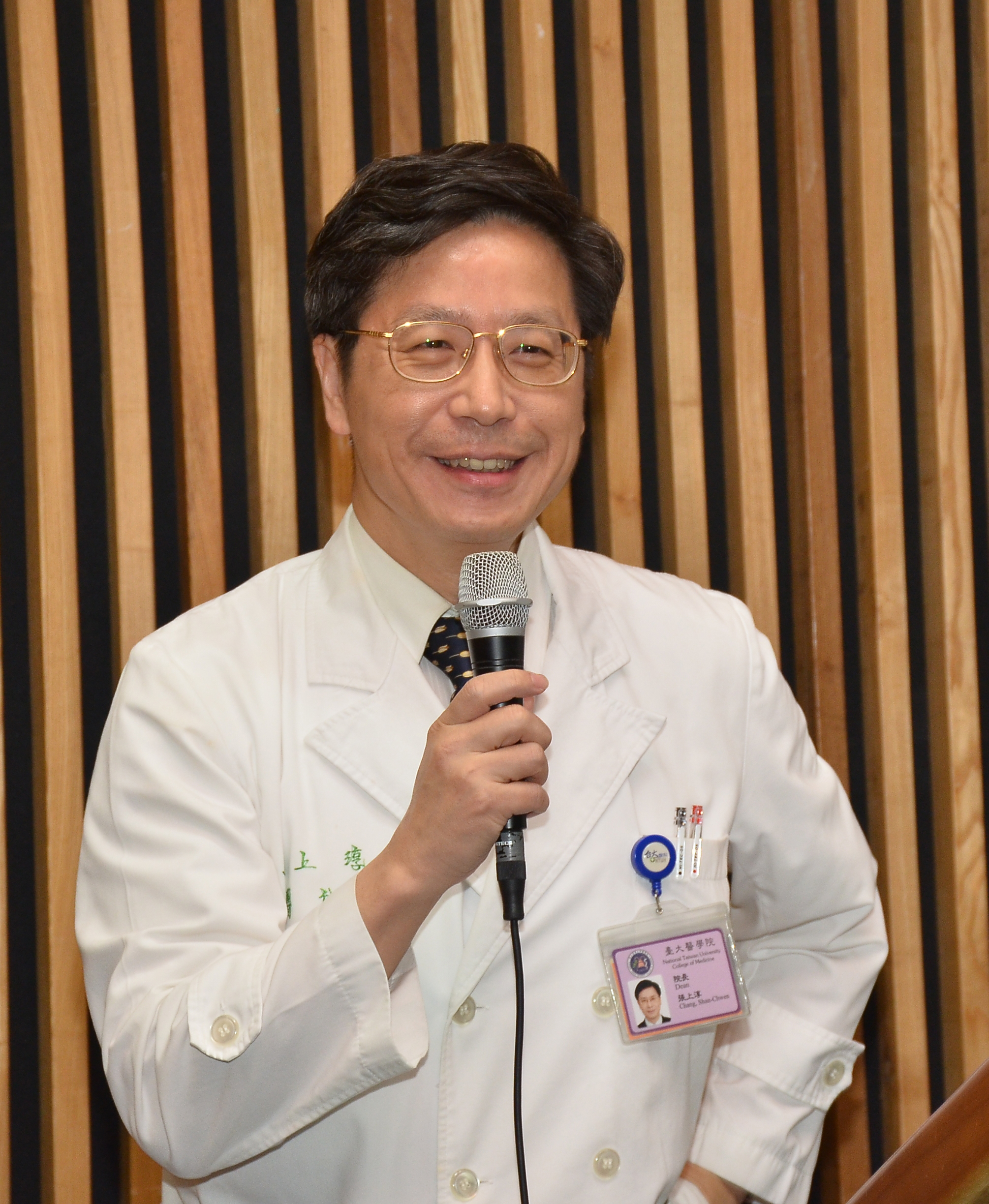NTU Vice President Chang Shan-chwen Wins Ministry of Education’s 2020 Excellent Teacher Award

Professor Chang Shan-chwen, the vice president of National Taiwan University and the attending physician of NTU Hospital’s Department of Internal Medicine, was given the 2020 Excellent Teacher Award by the Ministry of Education. Whether it be in medical schools, hospitals, Taiwan’s educational circles and even internationally, Professor Chang’s achievements and far-reaching influence are as follows:
Training the next generation in medical schools and hospitals
Having long devoted himself to teaching in classrooms, group discussions and bedside teaching, Professor Chang taught numerous topics ranging from internal medicine, infectious diseases, infection control, antibiotic use and drug resistance. This has not been the first award he has won for excelling in education, and his acknowledgements include various awards given by NTU: NTU Hospital’s Award of Excellent Clinical Teaching of the Year, NTU College of Medicine’s Best Teacher of the Year, the Award for Excellent Innovative Teaching Material, and both NTU’s Awards of Excellence Teaching and Outstanding Teaching of the Year.
During his tenure as dean of the NTU College of Medicine, he elevated the School of Medicine’s Group Discussion Course to an inter-departmental “problem-based, inter-discipline learning,” which enables students from all departments within the College of Medicine to become acquainted with one another before graduation and understand the specialties of each medical team, laying the groundwork for patient care among future teams.
Dedication and influence in Taiwan’s education sector
As director of NTU Hospital’s Department of Medical Education, Professor Chang established the Clinical Skill Center (CSC) and the Minimally Invasive Surgery Training Center to strengthen the training of students and young doctors in the departments of internal medicine and surgery. He also pioneered a teaching-based attending physician system, and both recruited and trained a large number of standardized patients, conducting the Objective Structured Clinical Examination (OSCE). Owing to Taiwan Association of Medical Education’s efforts, the OSCE has been implemented across the country, becoming a required qualification test for Taiwan’s National Medical Licensing Examination, and raising the bar for the examination’s qualifications.
When heading NTU’s School of Medicine, Professor Chang successfully spearheaded the transformation of the department’s seven-year curriculum into a new six-year curriculum plan. In 2013, he served as the dean of NTU’s College of Medicine and acted as convener of the “Working Group for Reforming Taiwan’s Schools of Medicine” under the Conference of Deans of Medical Colleges in Taiwan, enabling the smooth adoption of the new six-year school system nationally, thereby significantly improving Taiwan’s medical education.
Since 2011, he has concurrently served as chairman of NTU’s School of Medicine and has been appointed by the Ministry of Health and Welfare as convener of the “Post-Graduate Year Training (PGY) Working Group”, which is responsible for the planning of general medical training for medical students in their first year after graduation. This consists of leading the group members to plan the two-year PGY program for the new medical department system’s recent graduates, providing important blueprints and contributions for medical education and training programs at the national level.
International achievements and impact
While serving as dean of NTU’s College of Medicine and chairman of its School of Medicine, Professor Chang, also the president of the Taiwan Association of Medical Education during that period, led medical education academics from various universities in Taiwan to participate in important international conferences, and to grow and progress through discussions with other experts from around the world. Moreover, the number of papers published by Taiwanese scholars at the annual meetings held by the Association for Medical Education in Europe (AMEE) has increased from around 30 in 2015 to more than 100 in 2019.
Since 2013, he has been appointed by the Ministry of Education as a committee member and executive secretary of the Medical Education Council in Ministry of Education. In 2017, he served as the executive director of the Taiwan Medical Accreditation Council and the executive secretary of the Medical Education Council in Ministry of Education and participated the meetings of the U.S. Department of Education for explanation of Taiwan’s medical education system and the accreditation system of its medical schools. His defense resulted in the approval by the department’s National Committee on Foreign Medical Education and Accreditation (NCFMEA), which recognizes that Taiwan’s evaluation of its medical science departments is comparable to evaluations made by its American counterparts, meaning any accredited medical schools in Taiwan simultaneously reach the same standards established in the United States. This recognition has had a significant and far-reaching impact on medical education in Taiwan.
Believing that a “learner-centered” education is the most important aspect for course planning and implementation, and that the cultivation of good doctors hinges on “teaching through practice rather than simply lecturing,” Professor Chang Shan-chwen often imparts the mantra that, to contribute more to society, his students should strive to become good doctors, rather than famous ones. For thirty years, he has been promoting his ideals and teaching his methods, while also solving conundrums, practicing his expertise and exerting influence in the education field and abroad. This year’s Excellent Teacher Award granted by the Ministry of Education has undoubtedly been a much deserved one after a life of such outstanding service.